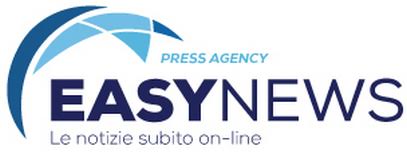
WHO steps up its humanitarian response in southern Ukraine following destruction of the Kakhovka Dam
The destruction of the Kakhovka Dam on 6 June 2023 has caused widespread devastation and human suffering. The overall impact on the region’s water supply, sanitation and sewage systems, and health services, cannot be underestimated.
The severe flooding downstream has displaced thousands of people and destroyed vital infrastructure including roads, electricity lines, agricultural land, health facilities, and private homes. The environmental damage alone could take years to fix, with potentially hazardous agricultural chemicals seeping into the water supply. The floods are also believed to have dislodged unexploded mines.
Downstream, flooding is occurring in a highly industrialized zone, posing a risk of chemical release into water, which could result in contamination and severe impact on people and animals for years to come.
The Kakhovka reservoir served as a crucial water source for numerous major cities in the Dnipropetrovsk and Zaporizhzhia regions and many smaller cities and settlements. The destruction of the dam has disrupted or contaminated the water supply in all these regions. The interruption in water flow has affected households, municipal networks, and agricultural irrigation systems in Kherson, Zaporizhzhia, and Crimea. Some areas are left with no electricity or potable water. Hospitals remain open and offering services, but accessibility is a serious issue given the extensive flooding.
Together with partners, WHO is urgently strengthening its humanitarian response in the affected areas in southern Ukraine to meet people's immediate and long-term health needs. In the short term, there is a significant risk of waterborne diseases, including cholera, typhoid, and rodent-borne diseases, e.g., Leptospirosis and Tularemia. In the medium- to long-term, WHO is concerned about the lasting physical and mental health impacts on affected communities, fixing the environmental damage caused by the floods, and restoring health facilities to serve the people. Disruption of health services may reduce access to essential health services, including chronic diseases, and other specialized care e.g., renal dialysis and oncology services.
WHO’s response
WHO is in the regions affected by the disaster to support Ukrainian health authorities and health workers to contain the health consequences of flooding. This includes delivery of essential medicines to hospitals serving the affected population, disease surveillance, and rapid assessment of mental health and other emerging needs.
WHO’s rapid response is focusing on four priority areas:
-
Strengthening and supporting communicable diseases prevention and control: Together with local health authorities, WHO is strengthening infectious disease surveillance of water-borne diseases like cholera, legionella, E. Coli by conducting situation analysis and rapid risk assessment, providing laboratory test kits and conducting media monitoring to quickly pick up alerts on water quality issues. No cholera cases have been reported thus far. We are in touch with authorities and public health services and are collecting water samples. As part of WHO’s ongoing efforts to address potential health risks, cholera kits were provided to Kherson and neighboring regions in April-May 2023. This preventive support can be deployed to immediately control isolated cases of disease, if they occur.
-
Providing direct mental health support: The WHO team is in the affected areas assessing mental health needs and will develop recommendations based on the data gathered.
-
Non-Communicable Diseases / Chronic diseases care: WHO, in collaboration with UN partners, is actively engaged in joint convoys to provide essential support. We have delivered enough medicines and medical products to treat 3,000 people for noncommunicable diseases like cancer, diabetes and heart disease. In the coming days, additional supplies to strengthen access to health services, particularly for those with chronic non-communicable diseases, will be delivered
-
Risk communication and community engagement: WHO has been sharing information on how to stay safe during floods and with contaminated water supply. Together with the Ukrainian Ministry of Health, WHO has developed materials on acute intestinal infections such as Cholera, Botulism, water treatment, and food safety.
-
Partners Coordination: WHO is the Health Cluster Lead agency. Health Cluster in Ukraine has presence in Kherson oblast through 24 partners, including 3 UN agencies who are active in 90 settlements implementing health interventions including mobile teams, TB/HIV, mental health, NCDs, and more.
In addition, WHO-supported national Emergency Medical Teams (EMTs), which are run together with Ukraine’s Ministry of Health and the Center for Emergency Medical Care and Disaster Medicine, are prepared to assist civilians with a range of urgent medical needs.
WHO and our UN partners continue to support Ukrainian authorities in monitoring all potential environmental risks, including chemical and nuclear hazards.
How to stay safe
Floodwater and standing water pose significant risks to human health. Drowning, injuries, and hypothermia are direct health risks from flooding. But the risks can be broader, ranging from animal bites to water- and food- borne diseases, to mental health problems.
WHO is working with Ukrainian health authorities and partners to provide affected people with health information and advice on how to stay safe in the aftermath of flooding.
It includes how to:
- protect health in the immediate aftermath of the flooding
- protect from drowning, injuries, and hypothermia
- prevent or treating diseases transmitted by rodents, mosquitoes and snake bites
- seek medical care
- ensure water and food are safe
- deal with dead animals
- return home safely
- access trusted information and advice sources
- Complete public health advice on how to protect your health during flooding can be found here.
In the current war situation, people are also advised not to approach or touch objects that are unfamiliar or look like mines or ammunition. The floods can unearth mines and unexploded ammunition from the ground, which can then drift and explode spontaneously.
WHO continues to regularly monitor the situation, including the health needs of the population.
This information was brought to you by Cision http://news.cision.com
If you would rather not receive future communications from WHO Regional Office for Europe, please go to https://optout.ne.cision.com/en/CFXP2xaBsSqj3YdqYw4jpapx5zipZSWTAVkf3mVgqXa8xMoM7kv1wycHBzpqJTxortt9nXkjkRqxnbPG3mjjwnrv5F1JVftjSFuCgNT2qpoMNLFyXoxLTA3Zm2LLb2E3fCL.
WHO Regional Office for Europe, Marmorvej 51, Copenhagen, 2100 Denmark

